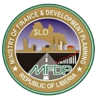GoL, Stakeholders Brainstorm on Tax Reform
Monrovia, Liberia - The Government of Liberia represented by the Ministry of Finance and Development Planning, and the Liberia Revenue Authority in collaboration with the United States Agency for International Development (USAID) have brainstormed on amendments made to the revised excise law passed by the legislature.
The day-long workshop, organized by USAID, MFDP, and LRA including the Board of Tax Appeal (BOTA) was part of efforts by USAID funded Revenue Generation for Governance and Growth (RG3) program which supports government in developing an efficient and effective tax policy and administration system that stimulates economic growth.
With technical work on the revised revenue codes currently ongoing, technicians and participants on Thursday February 7, 2019 came together in a workshop and reviewed components of revenue generation, to include investment incentives, exemption and tax payers in order to ensure that the revised code was in the right perspective.
The day-long event is part of several planned workshops on the revision of the Liberian Revenue Code. Taxation involves specifying tax bases and the rates associated with those bases.
RG3 Chief of Party Alexander Kitain speaking at the workshop expressed delight about the passage of the Excise amendments into Law. “I’m proud of the cooperation by stakeholders and the Liberian government that the Excise Amendments passed into law and will soon be printed into handbills” COP Kitain said.
He warned government to be mindful with regards to tax exemption for concessions. He said it was important for government to focus on the reduction of income tax rate, by not depleting revenue that could be generated due to tax exemption.
For his part, Dr. William B. Trautman, DAI Principal and Global Practice Specialist who prepared a presentation on tax reform that should be initiated, called on the LRA to focus more on the tax system and not the implementation of the investment incentives.
Dr. Trautman suggested that a uniform tax rule should apply to all concession, and agencies of government should checkmate these concessions to know whether they are creating jobs, and in compliance with the tax policy of the revenue code.
Speaking from policy point of view, Hassan A. Karneh Director of Indirect Tax stressed the need to revisit the investment incentive portfolio as stressed by President George M. Weah in the SONA Address.
He made specific reference to a case where investment incentives will meet the economic demand of the Liberian people in order to elevate them from poverty to better living standards.
Also speaking was Molley Kiazolu, LRA Assistant Commissioner for Revenue Policy, Statistics and Strategic Planning who said that the revenue code formed the basis of taxation, so it was important for the investment incentives to remain in the revised revenue code.
However, representatives from the Ministry of Finance and Development Planning (Revenue and Tax Policy Division) and the Liberia Revenue Authority stressed the need for a comprehensive review of the incentives regime so that tax expenditures and their accompanying benefits are fully aligned with the country’s economic growth and development. The need to undertake a holistic review of the Revenue Code of Liberia was also highlighted.
Latest Press Release
Calendar
Location
P. O. Box 10 - 9016
Broad & Mechlin Street
1000 Monrovia
info@mfdp.gov.lr




